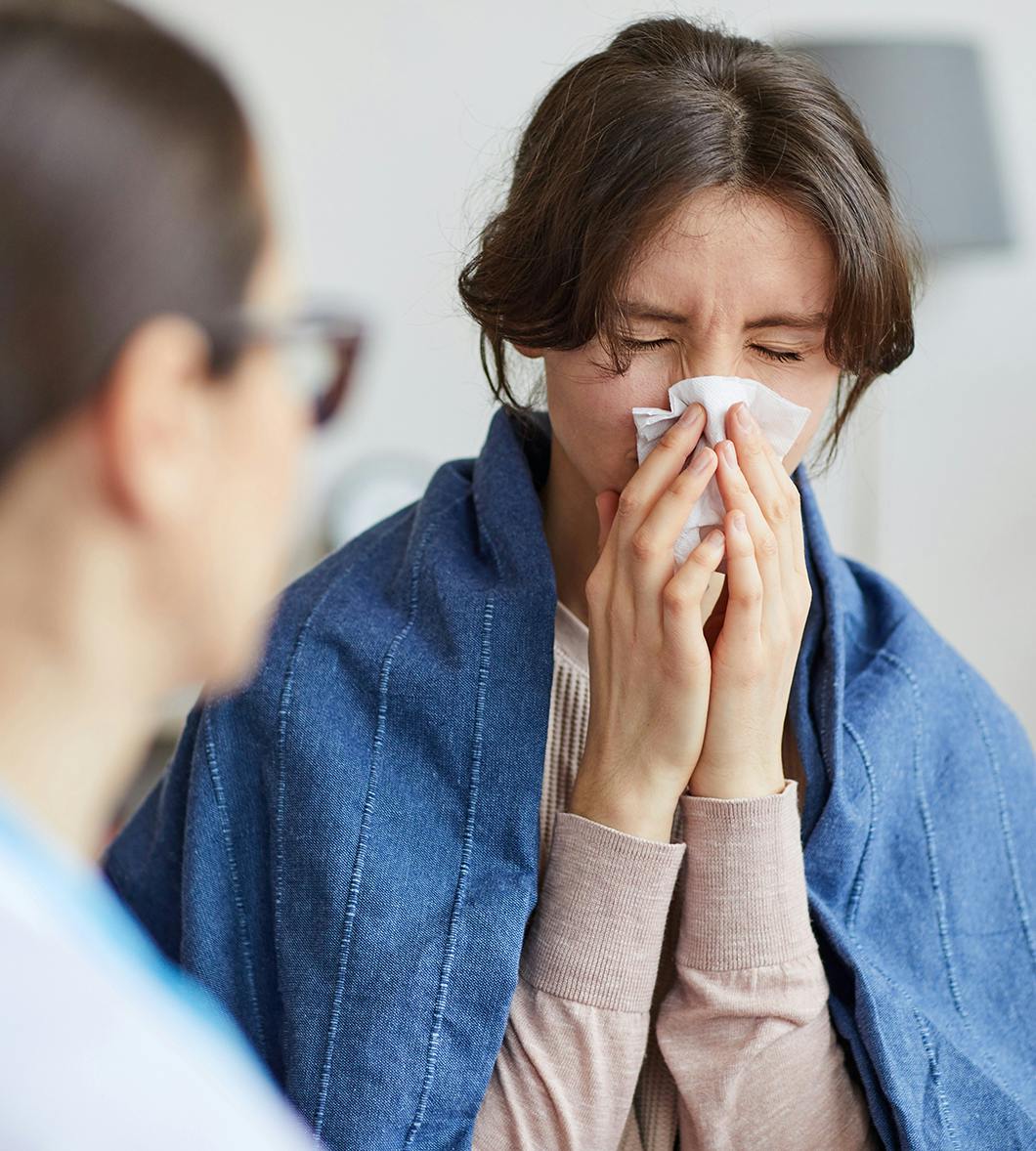Rhinitis is similar to hay fever, but is caused by something other than an allergen. Dubbed non-allergic rhinitis to differentiate the two, it produces cold-like symptoms that can leave you feeling miserable and worn-down. It may take allergy testing to rule out hay fever and accurately diagnose non-allergic rhinitis.
How Is Rhinitis Treated?
Your doctor will diagnose non-allergic rhinitis based on your symptoms and medical history and will want to rule out an allergic cause through skin and blood tests. Sinus problems present similar symptoms, so you may also need a nasal endoscopy or CT scan to rule out nasal polyps or a deviated septum. The treatment you are prescribed will be based on the severity of your symptoms. Mild cases of rhinitis may respond to simple home remedies; irrigation of the nasal passages with a Neti pot or bulb syringe, using a humidifier to moisten the air, and drinking lots of liquids can all help. If you know specifically which substance is causing you misery, avoid it if possible. It’s always a good idea to avoid cigarettes and alcohol. In addition, your doctor may recommend over-the-counter or prescription drugs. These include antihistamines, decongestants, and saline and corticosteroid nasal sprays. Surgery is probably going to be required for nasal polyps, a deviated septum, or any other physical abnormalities.



